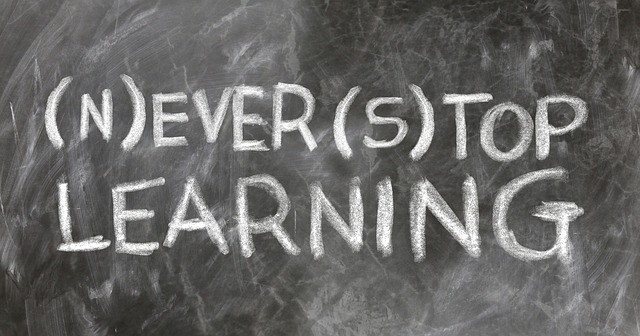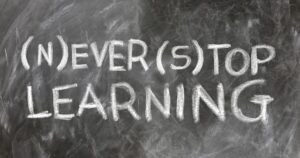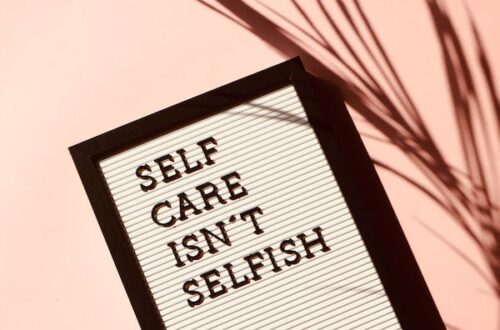
Achieve What You Want: Continued Education and Skill Development for Older Women
“Intellectual growth should commence at birth and cease only at death.”—Albert Einstein.
Oh, how I love learning!
Sometimes, I think I left my mother’s womb with a book in my hand.
I can’t remember when I wasn’t engaged in learning something new and exciting.
Yes, I’m a bookaholic, a bibliophile, and a literary addict!
What about you?
Are you an older woman wondering, “What now?”
If you are in good health and free of childrearing, you can enhance your personal life by continuing your education and developing new skills.
Skill development for older women is a valuable and empowering process that can enhance your personal life and make you happier and more fulfilled.
Keeping busy learning something new and exercising your intellectual muscles will give you a sense of inner contentment, bliss, and a profound sense of pleasure.
You will not experience boredom but will have an overall sense of well-being.
But what can you do?
If you are open to continuing your education and developing new skills, here are five (5) ideas:
- Digital Literacy
- Entrepreneurial Skills
- Communication Skills
- Financial Literacy
- Soft Skills
I will briefly describe how these skills can improve your confidence, independence, and overall well-being.
No. 1 Digital Literacy
What is digital literacy?
With the increasing reliance on technology, improving digital literacy is crucial.
Digital literacy includes learning to use computers, smartphones, and various software applications.
Digital literacy can open up new avenues for communication, information access, and even work opportunities.
If you decide to return to the workplace, you will need digital literacy to interact with people in the digital environment.
Consider this definition:
“Digital literacy means having the skills you need to live, learn, and work in a society where communication and access to information is increasingly through digital technologies like internet platforms, social media, and mobile devices. It’s a continual proves because of constant new apps and updates.” (Western Sydney University)
Examples of digital literacy skills:
- Sending emails.
- Using social media.
- Writing and publishing blogs.
- Searching for information on a topic.
- Evaluating the credibility of a source.
- Participating in classes and learning online.
- Understanding and avoiding fake news.
- Watching videos online.
Improving digital literacy can help you in the workplace and your personal life. You can better navigate the digital world, remain safe online, and have access to a range of resources you can use.
I describe myself as a technophobe!
But I have embraced technology.
Technology empowers businesswomen by providing platforms to enhance communication, efficiency, and business growth.
I encourage you not to fear technology but to embrace the technological advancements that can contribute to your success in the business world.
No. 2 Entrepreneurial Skills
Do you have a passion that you would like to turn into a business?
Perhaps you are highly skilled in a particular area that would be helpful to older women.
If either of these scenarios applies to you, here are some steps to help you acquire entrepreneurial skills:
- Education:
Formal Education: Consider pursuing a degree in business, entrepreneurship, or a related field. Many universities and business schools offer programs specifically designed to teach entrepreneurial skills.
Online Courses: Take advantage of online platforms that offer courses on entrepreneurship. Websites like Coursera, edX, and Udemy provide a wide range of courses taught by experts in the field.
- Read Widely:
Read books written by successful entrepreneurs to gain insights into their experiences and learn from their successes and failures.
Stay updated on business trends, industry news, and case studies to develop a broader understanding of the business world.
- Networking:
Attend industry events, conferences, and networking meetups to connect with other entrepreneurs, investors, and professionals. Building a network can provide valuable insights and opportunities. Join online communities and forums related to entrepreneurship. Platforms like LinkedIn and industry-specific forums can be great for networking and learning.
- Mentorship:
Seek out mentors who have experience in entrepreneurship. A mentor can provide guidance, share their knowledge, and offer valuable advice based on their experiences.
- Gain Practical Experience:
Start a small business. Learning by doing is often one of the most effective ways to develop entrepreneurial skills.
Consider internships or jobs in startups or small businesses where you gain exposure to the challenges and dynamics of entrepreneurship.
- Develop Soft Skills:
Enhance your communication, negotiation, and interpersonal skills. Entrepreneurs often deal with various stakeholders, and effective communication is crucial.
Build resilience and the ability to adapt to change. Entrepreneurship comes with uncertainties, and navigating challenges is a key skill.
- Financial Literacy:
Understand basic financial principles and learn how to manage budgets, read financial statements, and make informed financial decisions. Financial literacy is essential for successful entrepreneurship.
- Problem-Solving and Creativity:
Cultivate a problem-solving mindset. Entrepreneurs often face obstacles, and the ability to think creatively and find innovative solutions is crucial.
Practice critical thinking and decision-making skills. Analyze situations, weigh options, and make informed decisions.
- Continuous Learning and Take Risks:
Stay curious and open to learning. The business landscape evolves constantly, so being adaptable and willing to acquire new knowledge is essential for long-term success.
Embrace calculated risks and learn from both successes and failures. Entrepreneurship involves taking chances, and each experience contributes to your overall skillset.
Remember that entrepreneurship is a journey requiring skills, time, and dedication. Be persistent, stay motivated, and continue to refine and expand your skills throughout your entrepreneurial career.
No. 3 Communication Skills
Good communication skills are essential for effective interaction and understanding between individuals.
Here are some components of strong communication skills:
- Clarity: Express your thoughts and ideas clearly. Avoid ambiguity and use straightforward language to convey your message.
- Active Listening: Pay close attention to what others are saying, and show that you are engaged in the conversation by nodding, making eye contact, and providing feedback, which helps understand the message accurately.
- Empathy: Understand and consider the feelings and perspectives of others. Empathy allows you to connect with people more deeply and fosters positive relationships.
- Nonverbal Communication: Be aware of your body language, facial expressions, and gestures. Nonverbal cues can significantly impact the way your message is received.
- Respect: Treat others with respect and courtesy. Show appreciation for their opinions, even if you disagree. Respecting others fosters a positive and open communication environment.
- Feedback: Provide constructive feedback and be open to receiving feedback as well. This helps in continuous improvement and ensures that communication is effective.
- Confidence: Speak with confidence and conviction. This doesn’t mean being arrogant, but having assurance in your words can enhance your credibility and make your message more impactful.
- Conciseness: Avoid unnecessary details and keep your message focused. Being concise helps in maintaining the listener’s attention and prevents information overload.
- Positive Tone: Use a positive and friendly tone, even in challenging situations. A positive tone contributes to a more constructive and cooperative atmosphere.
No. 4 Financial Literacy
Financial literacy means the knowledge and understanding of various financial topics and concepts essential for making informed and effective financial decisions.
It encompasses a range of skills and competencies related to managing personal finances, budgeting, saving, investing, understanding financial products, and future planning.
Financial literacy is crucial to ensure sound financial decisions and achieve financial goals.
Have you heard of the 50-30-20 rule?
According to the United Nations Federal Credit Union (UNFCU.org), the rule means that 50% of your money goes towards needs, 30% goes towards wants, and 20% goes towards savings.
Do you need help?
Here are a few tips to help you improve your financial literacy:
- Educate Yourself: Subscribe to financial newsletters. Read books, articles, and blogs. Listen to financial podcasts.
- Set Financial Goals: Define short-term and long-term financial goals. Break down your goals into manageable, achievable steps.
- Budgeting: Create a realistic budget to track your income and expenses. Use budgeting tools or apps to help you stay organized.
- Emergency Fund: Build an emergency fund to cover unexpected expenses. Aim for six months’ worth of living expenses in your emergency fund.
- Debt Management: Understand the different types of debt and their impact on your finances. Develop a plan to pay off high-interest debt first and avoid accumulating unnecessary debt.
- Investing: Learn about investment options such as stocks, bonds, and mutual funds. Understand the concept of risk and return. Also, consider seeking the advice of a financial advisor.
- Retirement Planning: Start saving for retirement early. Understand the different retirement investment vehicles available.
- Credit Score Awareness: Monitor your credit score regularly. Understand how credit scores are calculated and what factors influence them. You will improve and maintain a healthy score if you maintain good credit habits.
- Stay Disciplined: Stick to your financial plan and avoid impulsive spending. Continuously educate yourself and stay updated on matters of finance.
Remember, improving financial literacy is an ongoing process.
Continuously seek to expand your knowledge and apply what you learn to make sound financial decisions.
No. 5 Soft Skills
What are soft skills?
Soft interpersonal or people skills are non-technical skills that relate to how you work and interact with others.
Soft skills are essential for personal and professional success and can significantly impact your ability to collaborate, communicate, and navigate various social situations.
Some common soft skills include communication, teamwork, problem-solving, creativity, time management, and emotional intelligence.
Here are some ways to improve your soft skills:
- Communication Skills:
Practice active listening: Pay full attention to the speaker and respond appropriately.
Work on clarity and conciseness in your communication.
Seek feedback on your communication style and be open to making improvements.
- Teamwork:
Develop a collaborative mindset.
Be open to diverse perspectives and ideas.
Practice effect collaboration by sharing responsibilities and recognizing team achievements.
- Problem-Solving:
Analyze problems systematically.
Break down complex issues into manageable parts.
Look for creative and innovative solutions.
- Adaptability:
Embrace change and view it as an opportunity for growth.
Develop a flexible mindset to adapt to new situations and challenges
Learn from experiences, both successes and failures.
- Time Management:
Prioritize tasks and set realistic goals.
Break down larger tasks into smaller, more manageable ones.
Use tools like calendars and planners to organize your schedule
- Emotional Intelligence:
Develop self-awareness by reflecting on your emotions and behaviors.
Practice empathy and try to understand others’ perspectives.
Manage stress and maintain a positive attitude.
- Networking:
Build and maintain professional relationships.
Attend industry events, workshops, and conferences to expand your network.
Be proactive in connecting with colleagues and mentors.
- Leadership:
Develop leadership qualities by taking on responsibilities and initiatives.
Lead by example and inspire others through your actions.
Seek opportunities to mentor or guide colleagues.
- Continuous Learning:
Stay updated on industry trends and advancements.
Attend workshops, seminars, or online courses to enhance your skills.
Be open to feedback and actively seek opportunities for improvements.
Improving soft skills is an ongoing process that requires self-awareness, practice, and a commitment to personal development.
Regularly evaluating your progress and seeking feedback from others can help refine and enhance your soft skills.
So, there you have it.
Achieving what you want is a journey that requires patience, persistence, and self-reflection.
Continued education and skill development are also needed to achieve what you want at this stage in life.
Stay focused on your goals, and remain true to yourself.
And do not hesitate to seek support when needed.
***** *****
In this article, you have discovered five (5) must-have skills to achieve what you want at this stage of your life: digital literacy, entrepreneurial skills, communication skills, financial literacy, and soft skills.
You are now ready to begin!
Key Takeaways
- What is digital literacy, and how can we achieve it?
- Entrepreneurial skills are needed to turn your passion into a business.
- What effective communication skills are necessary to interact effectively with others?
- The importance of financial literacy
- How to improve your interpersonal skills, also known as soft skills.
“Getting older makes you more alive. More vitality, more interest, more intelligence, more grace, more expansion.”—Jamie Lee Curtis




